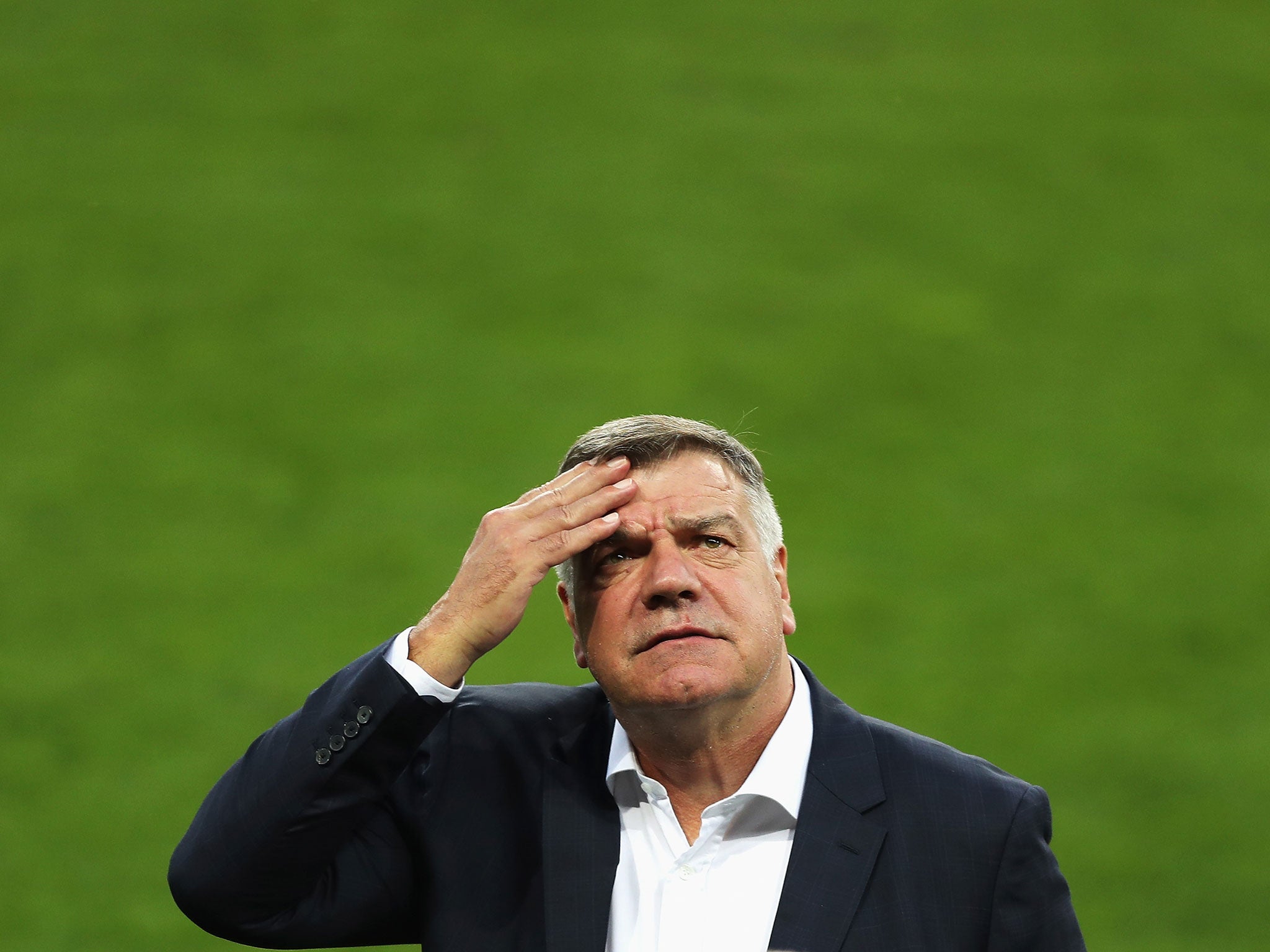After the Sam Allardyce scandal, football should operate like a respected corporation, not a sleazy second-hand car dealer
In politics we have laws, institutions and regulations to curb conflict and excess in public life. We just don’t know how prevalent such views and dubious practices are in our national game

A senior colleague of mine once told me that “when businessmen enter the football club boardroom, they leave their brains behind”. This caricature highlights crudely the gulf between standards of corporate governance, culture and regulation in business compared to those in so much of professional football. This week’s “Samgate saga” is only the latest example of this.
Not that standards in business are always that great. God knows we have had too many City scandals, excessive remuneration and dodgy deals. And Sam Allardyce is no Phillip Green.
But Allardyce’s grave mistake was saying that important rules on footballer transfers were “not a problem” and describing how they could be circumvented. It is like Chancellor Phillip Hammond stating tax law does not matter and undermining the HMRC. As the most senior FA official, Allardyce could not be so casual about such issues. His departure was sadly inevitable.
We just don’t know how prevalent such views and dubious practices are in our national game. That is why a new regime is needed.
In businesses we have corporate governance codes, compliance units and regulatory teams. Internal and external auditors pour over finances to check their legality and status. In public companies, CEO remuneration is published. Most of the time that works.
In politics, since the Telegraph brutally exposed the scandal of MPs’ expenses claims, we have had new laws, institutions and regulations to curb conflict and excess in public life. If anyone in Westminster is lining their pockets, at least we know about it.
In football we have the rules, but there is very little compliance or transparency. The FA and Premier League have owners’ and directors’ tests. These are important checks when club ownership changes hands, but oversight is then slackened too much.
For example, although the FA now publishes the gross amount paid to agents every four months, we do not know the detail behind that. Nor, pending further revelations, do we know about any undeclared amounts that are paid by agents to people inside the club. Such “off balance sheet” activity will not be detected by club finance teams and legal staff.
That is why we need new regulations and compliance measures to root out such malpractice. That may even mean not allowing the manager – or any employee or representative – to conduct business with an agent without another colleague being present. We had a “four eyes” principle in one international company I worked for, whether operating in Sweden or Senegal; it could come to that.
Most football clubs, it should be noted, are very well run and they will (rightly) protest that a few bad apples have spoiled their barrel. They will have nothing to fear from new business standards in football.
The sport needs radical change. The business must be modernised, with a new emphasis on governance, standards and an open culture promoted continuously from the very top of the FA.
Sadly, this plea is nothing new. To the FA’s credit, all its recent chairmen have fought, but failed, to bring this about. The votes of clubs and their vested interests are stacked against such change. For as long as that remains, professional football will retain the stench and practices of a second-hand car dealership.
Julian Eccles is the former marketing and communications director at the Football Association. He was previously communications director at Sky and Ofcom and a government special advisor


Join our commenting forum
Join thought-provoking conversations, follow other Independent readers and see their replies